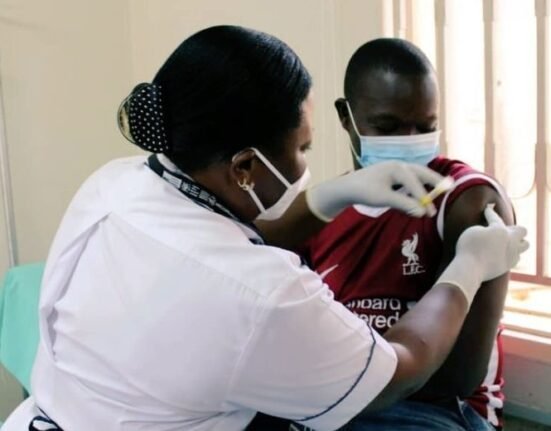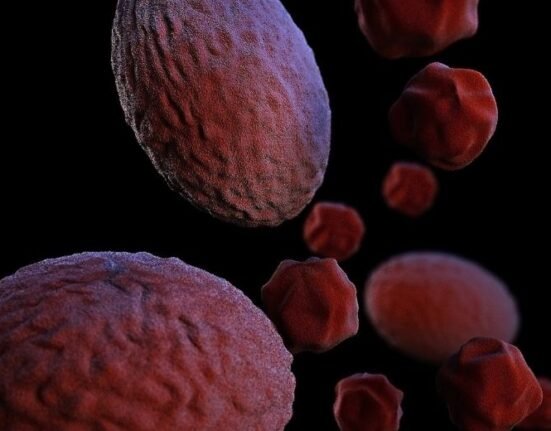HQ Team
June 10, 2023: A study, funded by the National Institute of Allergy and Infectious Diseases (NIAID), found that using the oral antibiotic doxycycline prevents sexually transmitted infections (STIs) among men who have sex with men (MSM) and transgender women, if taken within 72 hours of exposure.
A post-exposure approach, known as doxy-PEP, led to a two-thirds reduction in syphilis, gonorrhea, and chlamydia among participants who reported having an STI within the previous year. The findings were published in the New England Journal of Medicine.
The study, led by researchers from the University of California at San Francisco (UCSF) and the University of Washington, Seattle, enrolled 501 adults. The participants were at least 18 years old. They were also diagnosed with gonorrhea, chlamydia, or early syphilis in the prior year. Of the enrolled participants, 327 were taking HIV PrEP medications, and 174 were people living with HIV.
The participants were randomly assigned to receive either doxy-PEP or standard of care. The participants were instructed to take a 200 milligram (mg) doxycycline-delayed release tablet within 72 hours of condomless sex. They were regularly tested for side effects every three ,six and twelve months.
The results showed that among participants on HIV PrEP, the doxy-PEP arm experienced a significantly lower incidence of STIs than the standard of care arm. Overall, there was a 65% reduction in the incidence of all STIs per quarter in both those living with HIV and those taking HIV PrEP.
Quarterly clinic visits revealed that one or more STIs were diagnosed in 10.7% of doxy-PEP visits versus 31.9% of standard of care visits. Among participants living with HIV, the doxy-PEP arm also exhibited a lower incidence of STIs, with 11.8% of visits diagnosed with one or more STIs compared to 30.5% in the standard of care arm.
The study comes as rates of chlamydia, gonorrhea and syphilis have continued to increase in the U.S. in recent years. In 2020, WHO estimated 374 million new infections with 1 of 4 STIs: chlamydia (129 million), gonorrhoea (82 million), syphilis (7.1 million) and trichomoniasis (156 million).
Previous studies
A French trial of 232 gay and bisexual men already taking PrEP for HIV were randomly divided into two groups, with one given doxycycline to take after sex and the other group a placebo.
Over a follow-up period, there were 47% fewer STIs in the men taking doxycycline. There were 70% fewer chlamydia infections and 73% fewer syphilis infections in the men taking doxycycline when compared to those not taking it.
Gonorrhoea did not see any change. The gonorrhoea finding was perhaps not surprising: around half of the French and two-thirds of the UK strains of gonorrhoea, and around a quarter of those in the US, are resistant to tetracycline antibiotics (doxycycline belongs to this class)
A third large study – the Doxyvac study – was done by the previously mentioned French researchers in February 2023 with 502 gay and bisexual men on HIV PrEP . Among these 332 were randomised to take doxyPEP (200 mg within 72 hours after sex as in prior studies), while the rest did not take doxycycline. Participants were tested for STIs at baseline, and every three months for nine months.
DoxyPEP was found to be highly effective again, reducing the incidence rate or the first documented episode of chlamydia and syphilis by 89% and 79%, respectively.
The only study done with cisgender women participants – the dPEP Kenya trial – found that doxyPEP was not effective in preventing bacterial STIs among women.
“We need new, effective STI prevention methods and three studies have now demonstrated that doxy-PEP significantly reduces gonorrhea, chlamydia and syphilis. In the next several years during the implementation of doxy-PEP, we need to learn about maximizing equitable access and impact,” said Dr. Connie Celum, Professor of Global Health and Medicine at the University of Washington and co-principal investigator of the DoxyPEP Study.
Effective prevention methods are crucial in addressing the rising incidence of STIs, particularly among these populations. The results of these studies highlight the urgent need for new and effective STI prevention methods.








